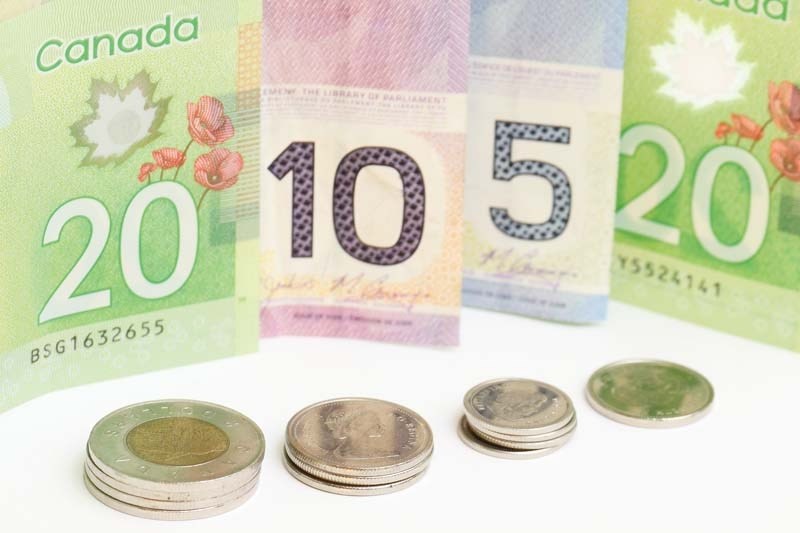LAKELAND – The federal carbon tax is set to increase from $65 to $80 per tonne on April 1 and will continue to increase by $15 each fiscal year until 2030, when the price reaches $170 a tonne.
Lakeland This Week reached out to some Lakeland municipalities to gather their thoughts about the carbon tax and the fiscal implication it has on municipalities.
“[Carbon tax] is just another tax. It hasn’t changed the climate [and] it’s not going to change the climate,” said County of St. Paul Reeve Glen Ockerman, adding the tax has been very straining to both ratepayers and the municipality itself.
The County of St. Paul paid $244,295 in carbon tax in 2022 just from diesel and utility-related expenses like County fleet equipment and powering up facilities.
Administration is still doing the math to calculate how much the County paid in 2023. But, it is projected to be much higher and will be even more in 2024.
Ockerman said in addition to inflation, a lot of taxes and services are downloaded to municipalities, while funding has not increased. It’s important to make adjustments to keep the County’s facilities open, and maintain the services they provide, and the County has not suspended any services so far, according to the reeve.
The County is trying to offset the costs by tendering services such as grass mowing or finding third-party contractors to do some services.
But ratepayers are the ones who “are really, really feeling the effects of carbon tax,” acknowledges Ockerman.
From the costs of doing business, to groceries, and transportation, rural regions are the most affected by carbon tax, says the reeve.
“We can’t take public transit,” he says, adding, people need to drive, and they are being taxed for that.
Lac La Biche
In Lac La Biche County, the municipality paid approximately $105,000 in federal gas tax on utility-related expenses alone, such as natural gas used for heating buildings in 2023, and around $90,000 in federal gas tax on fuel expenses.
According to Lac La Biche County administration, the carbon tax affects all types of goods and services, so it is difficult to gauge the overall financial impact of the tax on the municipality.
Lac La Biche Mayor Paul Reutov called carbon tax “just another tax grab,” saying the tax is very harmful to rural communities. He said unlike urban areas, rural residents do not have many options for energy other than natural gas.
Ultimately, the other option would be to start “chopping trees down” for firewood, he said.
Cold Lake
In the City of Cold Lake, the City paid $109,000 in carbon tax for utility-related expenses with facilities such as the Energy Centre and the Public Works shop in 2022. In 2023, they paid $147,000, and they are projecting to pay close to $200,000 for utilities in carbon tax for 2024.
City of Cold Lake Mayor Craig Copeland said there is the potential of these expenses trickling down to the taxpayers. “For basically every $200,000 in expenses in Cold Lake, that’s a one per cent tax increase,” he said.
Copeland believes that moving ahead with the carbon tax is not the best idea with the present state of the economy.
“There are so many people struggling… I just drove by the food bank last night and it was lined up with people.”
Copeland said the carbon tax touches many parts of the economy, such as food commodities - from the processing of food to delivering that food to stores and groceries - to utilities.
“When you’re trying to heat your home when it’s 40 below and you’re going to get taxed on that, it seems very ridiculous,” said the mayor. “We need to put a halt to this.”
Copeland does not believe the tax has achieved what the federal government claimed it would.
“Nothing’s changed… we live in a cold country here and it’s just not working.”
MD of Bonnyville
The federal government claims the carbon tax is “revenue neutral” because proceeds from carbon tax go back to the municipalities they were collected from.
Josh Crick, deputy reeve for the M.D. of Bonnyville, does not believe this to be true.
“It costs our municipality hundreds of thousands of dollars every year,” he said, adding, it also costs businesses and residents a lot of money each year.
“It’s a pointless tax.”
For the M.D. of Bonnyville, CAO Al Hoggan, said in fuel alone, the carbon tax costs the transportation department $224,905. With the upcoming increase, the M.D. estimates an additional $45,298 in fuel, to $270,203 at the end of the 2024 fiscal year.
In utility-related expenses, the carbon tax costs the MD of Bonnyville $31,407.15.
With the increase planned for April, the MD is projecting to pay around $300,000 in direct carbon tax in 2024.
That does not include the cost of indirect operating costs like carbon tax surcharges from trucking companies that deliver goods, for example. Hoggan estimates these surcharges and other items will also increase costs significantly.
“So, our actual carbon tax financial footprint is about $600,000 a year,” said Hoggan, adding that the only ways to recoup the costs would either be to raise taxes, or reduce services the MD provides to residents.
Crick says the MD of Bonnyville would like to see the carbon tax completely scrapped.
“Right now, we have a government that thinks by paying taxes, we can control the weather. We all know that doing taxes doesn’t control the weather,” he said. “We need a government with common sense in Ottawa and we need to get rid of the tax. I think that speaks for most of the people in the municipality.”



